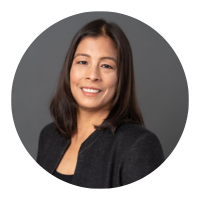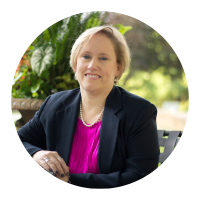Recently, EACCME® 3.0 was released with updated guidelines which have sparked concern and discussion among accreditation specialists across Europe and North America. This article will highlight key updates to the EACCME® criteria and its potential impact in the United States.
What Is EACCME®? ‘EE-ACK-ME’
The European Accreditation Council for Continuing Medical Education (EACCME®) establishes guidelines for the accreditation of international continuing medical education (CME) activities in Europe.1 EACCME® was created by the Union Européene des Médecins Spécialistes (UMES) in 2000 to set standards for high-quality, non-biased CME, subsequently continuing professional development (CPD), and to provide a mechanism for the recognition of CME across Europe and other countries.1 EACCME® works collaboratively with 26 European countries, many countries in Latin America and the Caribbean through CONFEMEL, Canada, and the United States. Since 2000, EACCME® and the American Medical Association (AMA) have approved credit reciprocity. To date, EACCME® has adopted three sets of accreditation criteria for CME with the first developed and released in 1999. The criteria were once again updated in 2016 with the EACCME® 2.0. EACCME® applies six general principles for accreditation (Table 1).
What’s New?
In March 2022, EACCME® approved a revised set of criteria with compliance starting in June 2023. Updates to the criteria were numerous, including the accreditation of micro-learning; new definitions; eligibility criteria; industry-sponsored satellite symposia; courses run on non-consecutive dates; on-demand sessions; blended learning; diversity and inclusion; and recognition of CPD/CME activities.2 More specifically, important updates for CME featured changes in definitions, eligibility criteria, co-development and limiting where industry-sponsored activities can be located. These changes will have substantial impact on U.S.-based CME providers who interact with the EACCME® system
What Does It Mean to U.S. CE Providers?
Changes in definitions in EACCME® 3.0 include the change in definitions of “unrestricted educational grant” to “unrestricted educational sponsorship.” Utilization of the term “unrestricted educational grant” is defined as a “any gift, payment, subsidy or other economic benefit to an educational institution, professional association, healthcare facility or governmental entity which does not impose any restrictions on the use of the grant, such as favorable treatment of a certain product or an ability of the marketer to control or influence the planning, content or execution of the education activity.”3 The definition of “sponsored education” is similar and is defined as “any activity provided by a sponsor organization, and includes, but is not limited to, lectures, conferences, seminars, workshops, grand rounds, in-service training programs and/or video conferencing.”3 Although not explicitly stated, “sponsorship” may include an exchange for marketing or advertising or other sponsor expectations. Providers of industry-funded CME must remain independent, in the planning of the activity, from the funding company. Utilizing “grant” rather than “sponsored” is ingrained in providers of CME. To ensure bias is not introduced to an activity, ACCME standards state an ineligible company can’t participate in the content development, selection of educational materials, selection of presenters and planners, and evaluation of the activity. Various practices are in place to demonstrate independence, such as listing disclosures of all participants and planners of the activity. In the U.S., providers are accustomed to receiving grants for unrestricted educational activities. However, the term “sponsor” is defined by EACCME® as “an individual, group, corporation or organization (for-profit and nonprofit) who provides financial (unrestricted financial support, exhibition booth, among others) or in-kind support (loan of equipment) in support of educational activities.” Notably, the change in definition aggregates grants with promotional funding.
Eligibility criteria for accreditation by EACCME® has also changed. At this time, professional communication agencies and medical communication agencies (medcomms) will require “co-development” with a physician organization to be considered. In other words, the health organization must lead the development of educational activities to be accredited by EACCME®. Medical communications (medcomms) work with companies (primarily the pharmaceutical industry) to market new products to patients and healthcare providers.4 Medcomms may publish clinical trial results, organize conferences and symposia, or develop promotional material for healthcare providers or patients. Despite the fact that CME providers are not medical communication agencies, it is unclear how this change will affect such companies’ ability to gain EACCME® accreditation. This requirement may make it more difficult for some companies to find a co-developer, as medical societies often prefer to work independently. Further, healthcare organizations may find it challenging to develop educational content within specific timeframes.
EACCME® 3.0 criteria will no longer consider commercial or industry sponsored satellite symposia, even if supported through an unrestricted educational sponsorship, for accreditation. Many CME providers historically have developed educational activities to serve as a symposium at international meetings. The satellite symposium typically is approved with many policies to minimize the impression of biased education. For example, some guidelines require CME-accredited activities be free of bias, objectives must meet the educational needs of the target audience, must be objective, balanced and scientifically rigorous, and whose content is built on an evidence-based approach to adult learning. Specific criteria are also often applied to the speakers of the activity, including disclosure of any relationships that present actual or potential conflicts of interest, must be a subject matter expert, and must deliver an evidence-based, balanced presentation. Often, the use of any product-specific promotional material is prohibited. Satellite symposia can allow attendees to explore topics beyond the structure and content created by the conference. Many times, learners unable to attend the conference may join a satellite symposium virtually, allowing them to engage and collaborate with peers from around the world.
The content of the symposium often reviews highlights of the conference, disseminating this information to a wider audience. Another benefit may be the ability to engage with national and international experts to exchange ideas and challenges that may exist in patient care.5 It is uncertain how this may impact CME providers in the U.S. who present satellite symposia at international conferences. One specific concern is the use of any product-specific promotional material in the satellite. Often a pharmaceutical company may provide sponsorship for a conference, which may support lanyards or bags that include the company’s name or product. Questions arise regarding how these sponsorships may be treated with the new criteria.
The release of EACCME® 3.0 and its updated guidelines have set the stage for significant discussions among accreditation specialists in Europe, North and South America, and the Caribbean. This article sought to provide a comprehensive overview of the key updates to the EACCME® criteria and their potential implications, particularly for CME providers in the United States.
Table 1: Principles of European Accreditation Council for Continuing Medical Education1
|
Commercial influence and bias
|
- The education provided must be free of any commercial influence or bias.
- The education provided must be free of any form of advertising.
- Educational sponsorship must be provided through an unrestricted educational sponsorship.
- Educational materials provided entirely by a pharmaceutical or medical equipment industry will not be considered for accreditation.
- As a general principle, all scientific content of an activity must be clearly separated from the commercial component.
|
|
Educational needs and learning objectives
|
- A needs assessment has to be performed prior to the educational material.
- Learning needs and educational outcomes have to be defined.
|
|
Conflict of interest and resolution of conflict of interest
|
- Potential or actual conflicts of interest will need to be disclosed by the Organizing/Scientific Committee and the faculty.
- Any actual conflict of interest will need to be resolved prior to the educational material.
|
|
Learners’ engagement and feedback
|
- Learners’ attendance will need to be monitored.
- Learners are expected to provide feedback on the educational material.
- The provider must submit an event report based on the learners’ feedback.
|
|
Quality control
|
The UEMS-EACCME® will randomly perform quality controls of any type of accredited events to ensure compliance with EACCME® accreditation criteria. The provider will need to provide free unaccompanied access to the entire event to any EACCME® appointed official.
|
|
Other healthcare professionals
|
EACCME® will consider supporting accreditation for other healthcare professionals (other than medical specialists) in collaboration with their relevant professional bodies.
|
 Sandra Benavides Caballero, PharmD, FCCP, FPPA, has dedicated her career to the education of healthcare professionals, focusing on improved learning strategies and outcomes. She received her PharmD from the University of California, San Francisco. She completed a general practice residency at the University of California, San Diego Medical Center, and a Pediatric Pharmacotherapy Fellowship at the Ohio State University. Despite spending many years in academia, Sandra has maintained practice in a variety of pharmacy areas, mostly specialized in pediatrics. Dr. Caballero serves as the associate director of outcomes and assessment at Knowfully Medical Education.
Sandra Benavides Caballero, PharmD, FCCP, FPPA, has dedicated her career to the education of healthcare professionals, focusing on improved learning strategies and outcomes. She received her PharmD from the University of California, San Francisco. She completed a general practice residency at the University of California, San Diego Medical Center, and a Pediatric Pharmacotherapy Fellowship at the Ohio State University. Despite spending many years in academia, Sandra has maintained practice in a variety of pharmacy areas, mostly specialized in pediatrics. Dr. Caballero serves as the associate director of outcomes and assessment at Knowfully Medical Education.
 Susan Yarbrough, CHCP, offers over 20 years of accreditation and continuing medical education experience. These range from hospital-based Academic Research Organizations to leadership within industry-leading CE accredited providers. In May 2023, she branched out to start her own consulting firm, CE Nerd 4 Hire. Susan’s experience includes terms on the ACEhp’s CHCP Commission, chairing the CHCP Eligibility Committee, and service as a Joint Accreditation and ACCME surveyor. She was an early adopter of the HCP CE/CPD professional certification (CHCP) and has been continuously certified since 2009. Susan also has been recognized by the Alliance for Continuing Education in the Health Professions as a Distinguished Member. Her extracurricular activities include audiobooks, walking, hiking and supporting her dogs in the lifestyle to which they have become accustomed.
Susan Yarbrough, CHCP, offers over 20 years of accreditation and continuing medical education experience. These range from hospital-based Academic Research Organizations to leadership within industry-leading CE accredited providers. In May 2023, she branched out to start her own consulting firm, CE Nerd 4 Hire. Susan’s experience includes terms on the ACEhp’s CHCP Commission, chairing the CHCP Eligibility Committee, and service as a Joint Accreditation and ACCME surveyor. She was an early adopter of the HCP CE/CPD professional certification (CHCP) and has been continuously certified since 2009. Susan also has been recognized by the Alliance for Continuing Education in the Health Professions as a Distinguished Member. Her extracurricular activities include audiobooks, walking, hiking and supporting her dogs in the lifestyle to which they have become accustomed.
References:
- European Accreditation Council for Continuing Medical Education. Available at: https://eaccme.uems.eu/. Accessed August 20, 2023.
- Grenho, João. “Implementation of EACCME 3.0.” May 16, 2023. Brussels. Letter. Available at: https://www.uems.eu/ . Accessed August 19, 2023.
- Unrestricted grant definition. Law Insider. Available at:.https://www.lawinsider.com/dictionary/unrestricted-grant#:~:text=Unrestricted%20grant%20means%20any%20gift,or%20an%20ability%20of%20the. Accessed August 15, 2023.
- Kapoor K. Medical communications in a changing world: interesting times ahead. Physiology News Magazine. 2019:114. DOI https://doi.org/10.36866/pn.114.36.
- Three trends in satellite symposia. Aptitude Health. Available at: https://www.aptitudehealth.com/oncology-news/trends-in-satellite-symposia/. Accessed August 16, 2023.